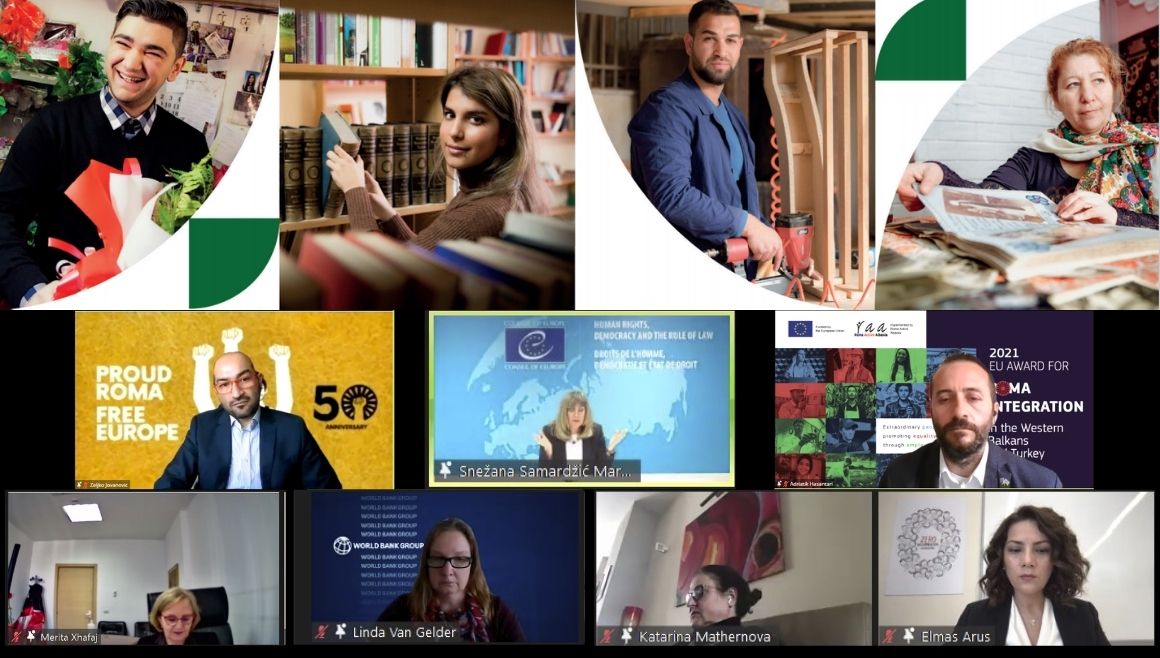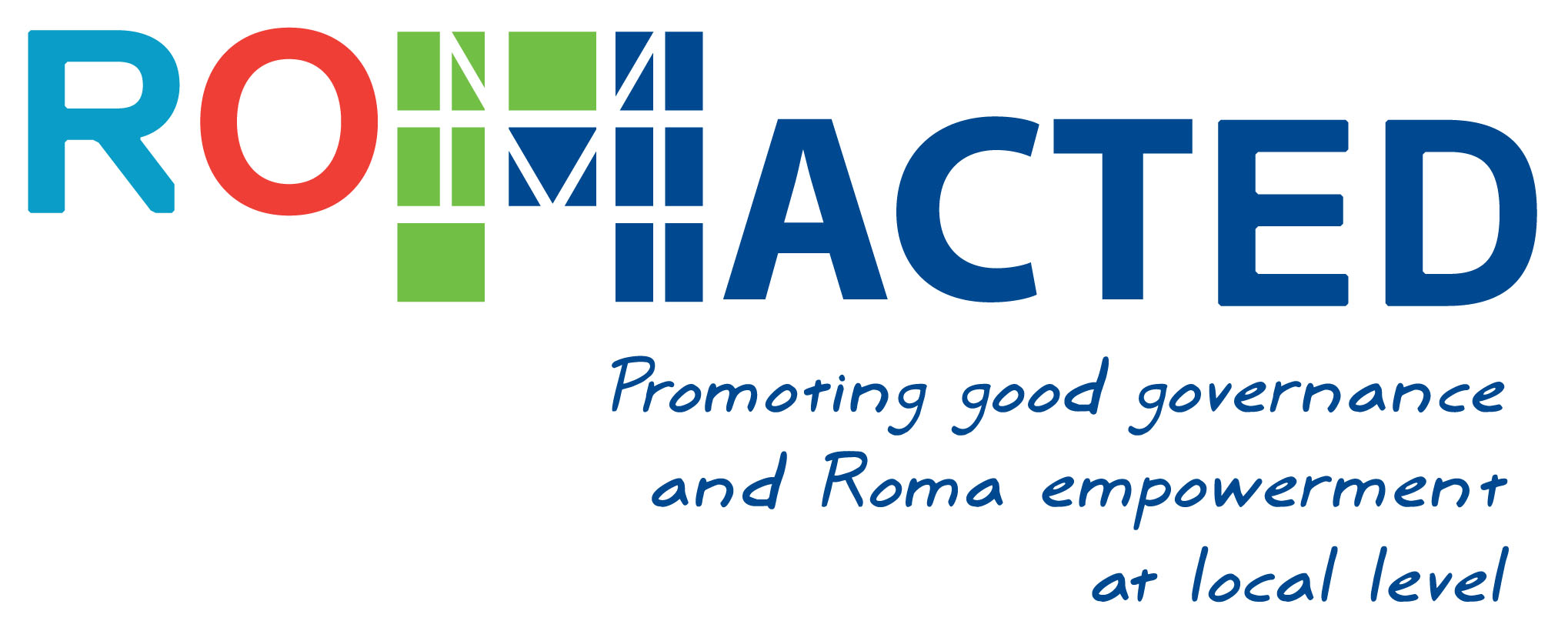The event was organised by the European Commission`s Directorate-General for EU Neighbourhood and Enlargement in close co-operation with the United Nations Development Programme (UNDP). The event was divided into two panels, taking into account the representation from the international, national and civil society level. The entire debate was moderated by Mr Zeljko Jovanovic, director from the Open Society Foundstions - Roma Initatives Office.
The Director General of DG Democracy, Ms Snezana Samardzic-Markovic presented the work of the Council of Europe (CoE) as well as the ROMACTED Programme in the first panel "The socio-economic impact of COVID-19 on Roma in the Western Balkans and Turkey". Ms Samardzic-Markovic shared insights on how the Council of Europe opened its legal instruments to check the potential human rights violations in early stages of the pandemic, in order to monitor violations that first affected vulnerable groups. Within the human rights framework of which the CoE is a guardian, the COVID-19 crisis has created an opportunity for the member states to unequivocally commit to equality and inclusion and to acknowledge once more the interconnectedness of all human rights – political, economic, social, civil and cultural. The duties to safeguard liberties, on the one hand, and to protect against pandemic events, on the other, are in both cases a human rights matter.
“Times of major international changes such as the COVID-19 crisis are prone to the flourishing of nationalistic rhetoric and the scapegoating of ‘others’”, said Ms Samardzic-Markovic.
Persons belonging to national minorities and other vulnerable groups have been reported to be exposed to stigma, linking the virus to their (perceived) belonging to their community. Increases in hate speech, discrimination and stigmatization against minority groups, especially Roma communities, also continue to be reported throughout the crisis. The Roma community in particular has been targeted by hate speech in many different places across the CoE area, exposing the deeply rooted anti-Roma sentiments existing in society.
Ms Samardzic-Markovic also drew attention to the a comprehensive analysis prepared by CDADI on the anti-discrimination, diversity and inclusion dimensions in the CoE Member States during the pandemic, and came up with a number of recommendations on how to ensure anti-discrimination in these difficult times. In parallel, the CoE has been implementing the ROMACTED Programme with the support of the EU since 2017. Having in mind the human rights framework of the CoE, the opportunity of the grassroots presence through ROMACTED was used to zoom in on the life of people in their own community during the pandemic, to find evidence and thus obtain a more realistic picture of the situation on the ground. In this way, the CoE was able to see whether access to all services are ensured equally and whether public policies are concieved in a way that they apply equally to all individuals in accordance with human rights legal instruments.
Ms Samardzic-Markovic concluded her intervention by stating that the Council of Europe is not a humanitarian organisation, nor is ROMACTED a humanitarian programme. Nevertheless, since these unprecedented times impose special measures, the responses were organised in such a way that the objectives and mission of both the Organisation and the programme remain clear, especially regarding the prevention of abuses of human rights and the equal distribution of emergency aid, the prevention of discrimination and risks of politicisation of the crisis, including the use of hate speech and repressive measures against Roma. The main priority during this crisis is to help the Roma families who are in the most vulnerable situations and excluded from humanitarian protection and assistance. The overall nature and focus of the ROMACTED Programme remain, however, on the promotion of good governance and empowerment of Roma citizens at local level.
The agenda of the event:
PANEL I: The socio-economic impact of COVID-19 on Roma in the Western Balkans and Turkey
MODERATOR: Zeljko Jovanovic, Director, Open Society, Roma Initiative Office
- Katarína Mathernová, Deputy Director General, DG NEAR
- Linda Van Gelder, World Bank Country Director for the Western Balkans
- Snezana Samardzic-Markovic , Director General of DG Democracy, Council of Europe
- Merita Xhafaj, General Director for Social Policies, Ministry of Health and Social Protection of Albania
- Elmas Arus, Director, Zero Discrimination Association, Turkey
- Adriatik Hasantari, Director, Roma Active Albania
PANEL II: COVID-19 response measures and partnerships for improved livelihoods and inclusive employment of Roma
MODERATOR: Zeljko Jovanovic, Director, Open Society, Roma Initiative Office
- Gordana Comic, Minister for Human and Minority Rights and Social Dialogue of Serbia
- Jagoda Sahpaska, Minister of Labour and Social Policy, Government of North Macedonia
- Mirjana Spoljaric Egger, Assistant Secretary General and UNDP, Regional Director of RBEC
- Tomáš Boček, Vice-Governor, Council of Europe Development Bank
- Petru Dulgheru, Executive Director, REDI
- Daniela Zampini, Senior Employment Specialist, ILO
- Orhan Usein, Head of Office of the RCC Roma Integration 2020, Regional Cooperation Council
Closing and conclusions
- Milos Lucic, Minister of Human Rights and Refugees of Bosnia and Herzegovina
- European Commission/DG NEAR


